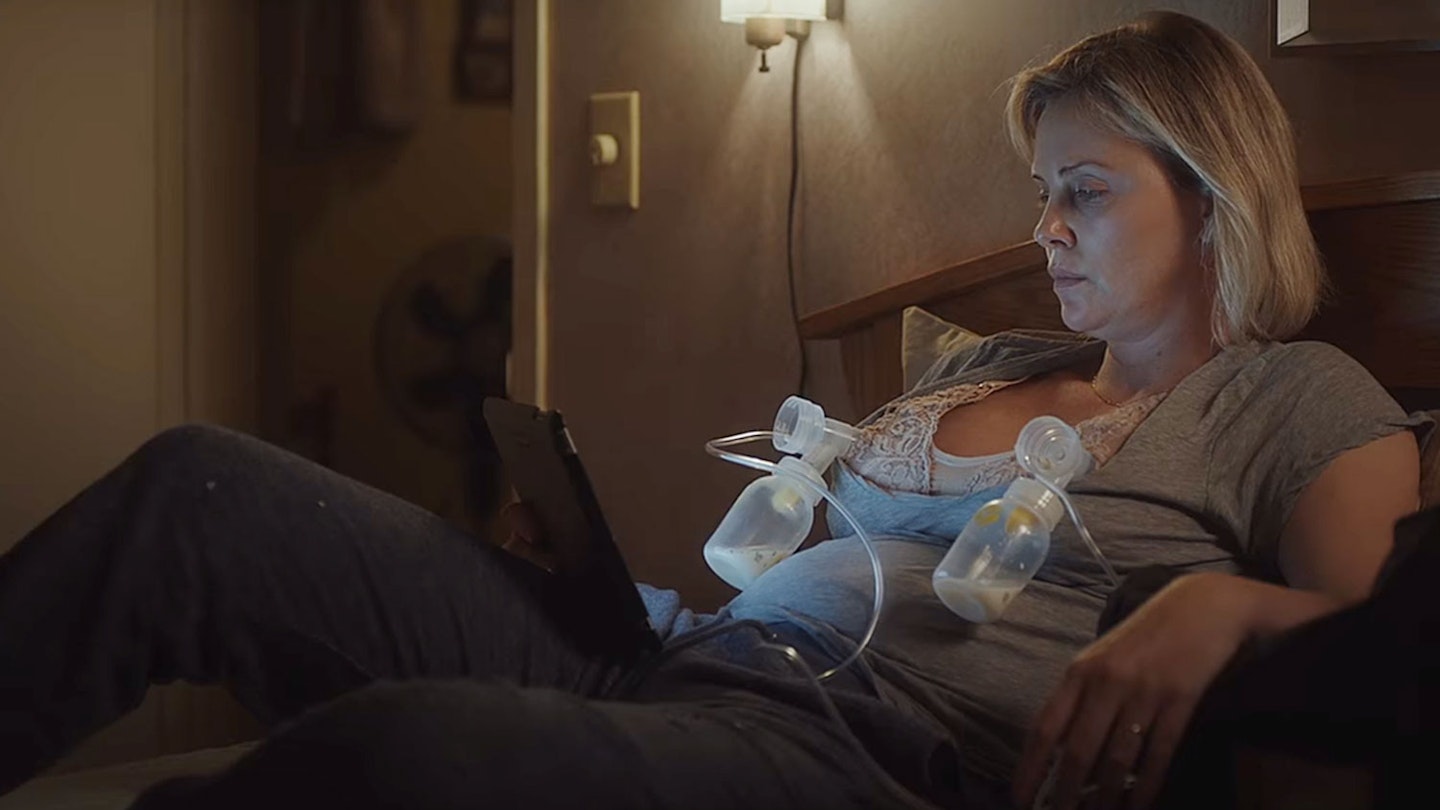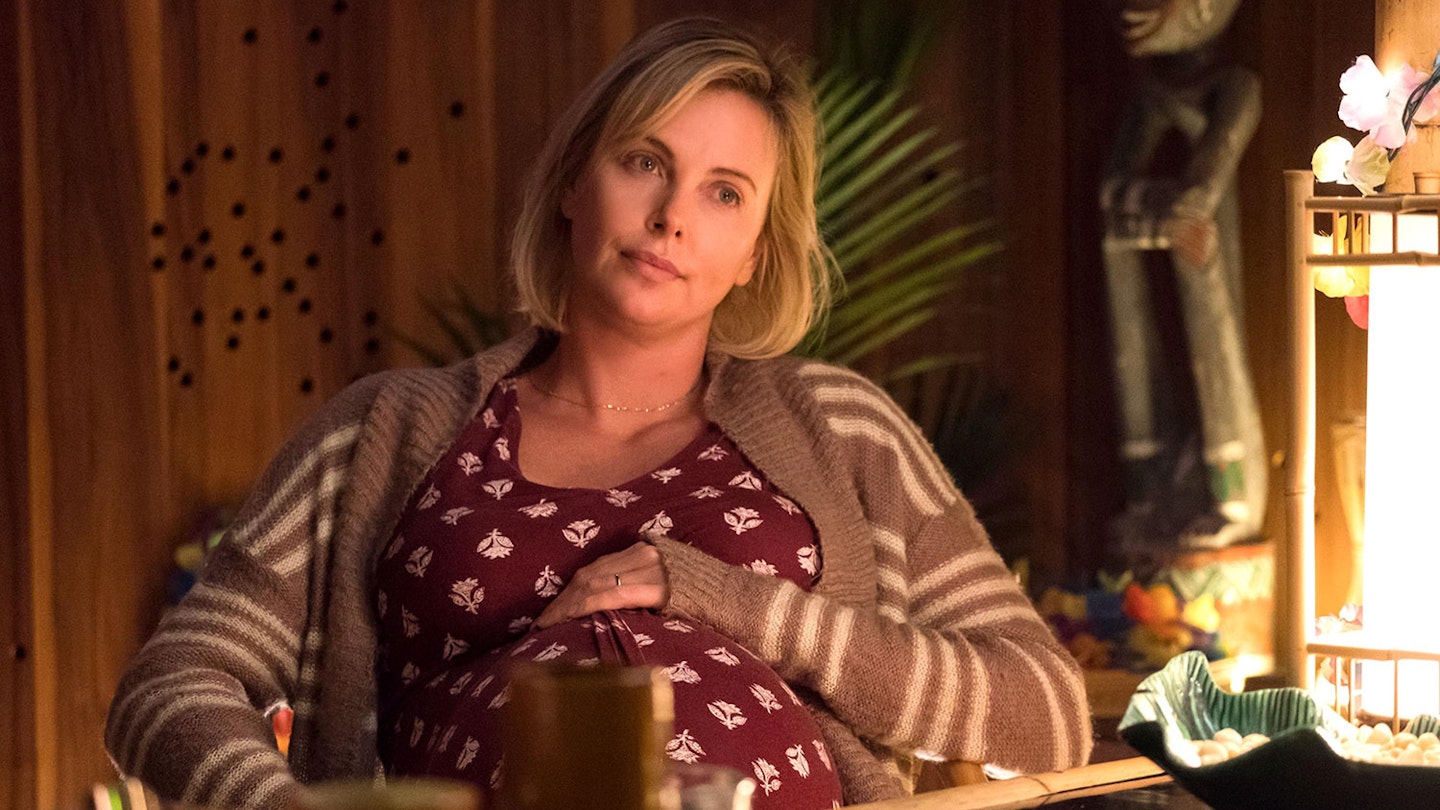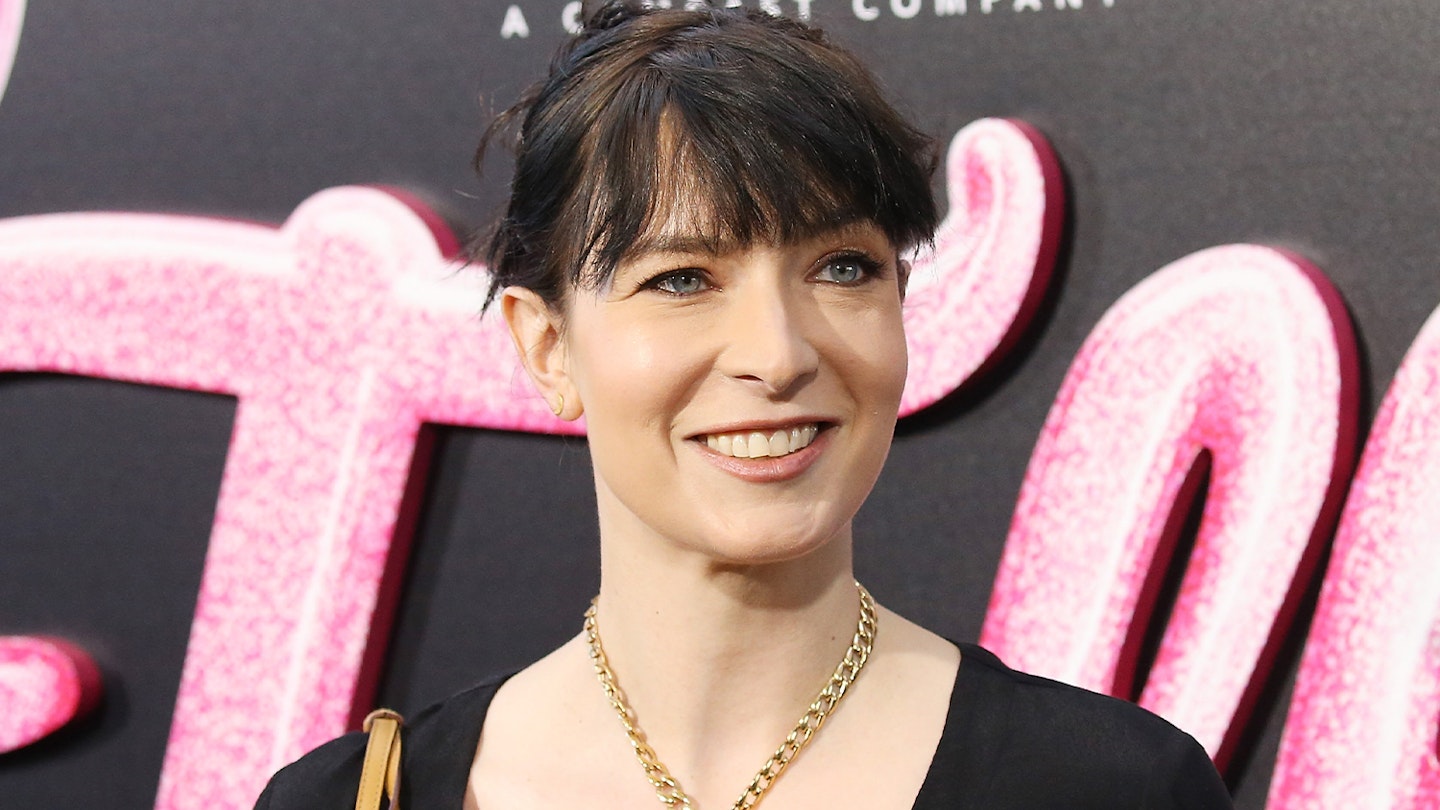When movies aren’t perpetuating the saccharine myth of the ‘magic’ of childbirth, they often present everyday, mid-life domesticity as something to be escaped, usually via flight to some exotic location or through the sexual reawakening of an extramarital affair. Diablo Cody and Jason Reitman’s Tully locates us in a dramatically satisfying middle ground between the two yawnsome clichés, defined by a refreshing honesty that somehow makes ‘boring’ interesting. Exciting, even.

Where Juno focused on an expectation-defying girl crossing the threshold into womanhood (then wisely taking a step back), and Young Adult was an acerbic study of a Gen X-er wilfully arresting development, this third Reitman-Cody joint finds its resigned protagonist mired deep in the messy, exhausting reality of motherhood. Baby Mia is a bald, screeching tyrant and her mother Marlo (Charlize Theron) is a sleep-deprived thrall, a husk who for these (20-hour) days contains only breast milk.
It's Theron's best and most transformative performance since Monster.
It’s a very different role for Theron from Young Adult’s spiteful Mavis, and one which brings out the actor’s best and most transformative performance since, honestly, Monster. Marlo is as multi-faceted as any of us, careening from gentle joker to raging screamer to self-questioning agoniser. She has a heightened aptitude for crisply delivered one-liners (“You’re like a book of fun facts for unpopular 4th-graders”), but she’s also warm, natural and believable, in a recognisably crumpled way.
At the narrative’s core is her relationship with the title character, a perky, sprite-ish younger woman played by Mackenzie Davis, who is almost irritatingly too good to be true. If this were a romcom, she’d be a manic-dream-pixie stereotype, at least on arrival. There’s a bit of creative brinkmanship going on here. Tully strikes a slightly discordant note, jarring against the film’s otherwise naturalistic tone. In fact, once she starts ‘fixing’ Marlo’s life with cupcakes, sangria, sex advice and naive philosophy, the story starts veering in directions that just feel slightly wrong and disappointingly trite.
But don’t worry. Stick with it. This isn’t another Reitman misstep like Men, Women & Children or Labor Day, and we’re brought through this risky journey to a conclusion which, while hardly original (to offer any comparison would be too much of a giveaway), feels fresh in this context. Perfect, in fact, for a story about a woman desperately missing the person she was before that person was killed by her babies.








